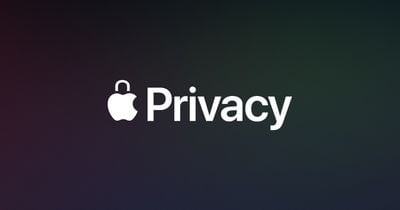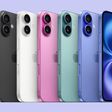Apple has published a FAQ titled "Expanded Protections for Children" which aims to allay users' privacy concerns about the new CSAM detection in iCloud Photos and communication safety for Messages features that the company announced last week.

"Since we announced these features, many stakeholders including privacy organizations and child safety organizations have expressed their support of this new solution, and some have reached out with questions," reads the FAQ. "This document serves to address these questions and provide more clarity and transparency in the process."
Some discussions have blurred the distinction between the two features, and Apple takes great pains in the document to differentiate them, explaining that communication safety in Messages "only works on images sent or received in the Messages app for child accounts set up in Family Sharing," while CSAM detection in iCloud Photos "only impacts users who have chosen to use iCloud Photos to store their photos… There is no impact to any other on-device data."
From the FAQ:
These two features are not the same and do not use the same technology.
Communication safety in Messages is designed to give parents and children additional tools to help protect their children from sending and receiving sexually explicit images in the Messages app. It works only on images sent or received in the Messages app for child accounts set up in Family Sharing. It analyzes the images on-device, and so does not change the privacy assurances of Messages. When a child account sends or receives sexually explicit images, the photo will be blurred and the child will be warned, presented with helpful resources, and reassured it is okay if they do not want to view or send the photo. As an additional precaution, young children can also be told that, to make sure they are safe, their parents will get a message if they do view it.
The second feature, CSAM detection in iCloud Photos, is designed to keep CSAM off iCloud Photos without providing information to Apple about any photos other than those that match known CSAM images. CSAM images are illegal to possess in most countries, including the United States. This feature only impacts users who have chosen to use iCloud Photos to store their photos. It does not impact users who have not chosen to use iCloud Photos. There is no impact to any other on-device data. This feature does not apply to Messages.
The rest of the document is split into three sections (in bold below), with answers to the following commonly asked questions:
- Communication safety in Messages
- Who can use communication safety in Messages?
- Does this mean Messages will share information with Apple or law enforcement?
- Does this break end-to-end encryption in Messages?
- Does this feature prevent children in abusive homes from seeking help?
- Will parents be notified without children being warned and given a choice?
- CSAM detection
- Does this mean Apple is going to scan all the photos stored on my iPhone?
- Will this download CSAM images to my iPhone to compare against my photos?
- Why is Apple doing this now?
- Security for CSAM detection for iCloud Photos
- Can the CSAM detection system in iCloud Photos be used to detect things other than CSAM?
- Could governments force Apple to add non-CSAM images to the hash list?
- Can non-CSAM images be "injected" into the system to flag accounts for things other than CSAM?
- Will CSAM detection in iCloud Photos falsely flag innocent people to law enforcement?
Interested readers should consult the document for Apple's full responses to these questions. However, it's worth noting that for those questions which can be responded to with a binary yes/no, Apple begins all of them with "No" with the exception of the following three questions from the section titled "Security for CSAM detection for iCloud Photos:"
Can the CSAM detection system in iCloud Photos be used to detect things other than CSAM?
Our process is designed to prevent that from happening. CSAM detection for iCloud Photos is built so that the system only works with CSAM image hashes provided by NCMEC and other child safety organizations. This set of image hashes is based on images acquired and validated to be CSAM by child safety organizations. There is no automated reporting to law enforcement, and Apple conducts human review before making a report to NCMEC. As a result, the system is only designed to report photos that are known CSAM in iCloud Photos. In most countries, including the United States, simply possessing these images is a crime and Apple is obligated to report any instances we learn of to the appropriate authorities.Could governments force Apple to add non-CSAM images to the hash list?
Apple will refuse any such demands. Apple's CSAM detection capability is built solely to detect known CSAM images stored in iCloud Photos that have been identified by experts at NCMEC and other child safety groups. We have faced demands to build and deploy government-mandated changes that degrade the privacy of users before, and have steadfastly refused those demands. We will continue to refuse them in the future. Let us be clear, this technology is limited to detecting CSAM stored in iCloud and we will not accede to any government's request to expand it. Furthermore, Apple conducts human review before making a report to NCMEC. In a case where the system flags photos that do not match known CSAM images, the account would not be disabled and no report would be filed to NCMEC.Can non-CSAM images be "injected" into the system to flag accounts for things other than CSAM?
Our process is designed to prevent that from happening. The set of image hashes used for matching are from known, existing images of CSAM that have been acquired and validated by child safety organizations. Apple does not add to the set of known CSAM image hashes. The same set of hashes is stored in the operating system of every iPhone and iPad user, so targeted attacks against only specific individuals are not possible under our design. Finally, there is no automated reporting to law enforcement, and Apple conducts human review before making a report to NCMEC. In the unlikely event of the system flagging images that do not match known CSAM images, the account would not be disabled and no report would be filed to NCMEC.
Apple has faced significant criticism from privacy advocates, security researchers, cryptography experts, academics, and others for its decision to deploy the technology with the release of iOS 15 and iPadOS 15, expected in September.
This has resulted in an open letter criticizing Apple's plan to scan iPhones for CSAM in iCloud Photos and explicit images in children's messages, which has gained over 5,500 signatures as of writing. Apple has also received criticism from Facebook-owned WhatsApp, whose chief Will Cathcart called it "the wrong approach and a setback for people's privacy all over the world." Epic Games CEO Tim Sweeney also attacked the decision, claiming he'd "tried hard" to see the move from Apple's point of view, but had concluded that, "inescapably, this is government spyware installed by Apple based on a presumption of guilt."
"No matter how well-intentioned, Apple is rolling out mass surveillance to the entire world with this," said prominent whistleblower Edward Snowden, adding that "if they can scan for kiddie porn today, they can scan for anything tomorrow." The non-profit Electronic Frontier Foundation also criticized Apple's plans, stating that "even a thoroughly documented, carefully thought-out, and narrowly-scoped backdoor is still a backdoor."





















